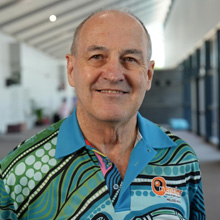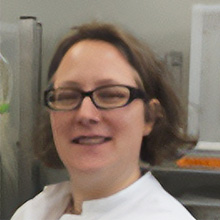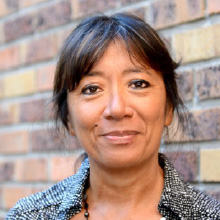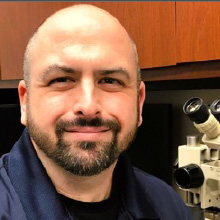Keynote Speakers

Bart Currie
Read Biography
Bart Currie is an infectious diseases and public health physician at Royal Darwin Hospital, Australia and Professor in Medicine at the Northern Territory Medical Program. He leads the Tropical and Emerging Infectious Diseases team at Menzies School of Health Research. He has long term clinical and research interests in tropical infections and tropical toxinology. He particularly enjoys the close One Health collaborations in Darwin with the NT CDC including Medical Entomology and with Veterinary colleagues – all linking together through the NT Zoonoses Committee established 3 decades ago.

Prof. Esther Schnettler
Read Biography
Professor Esther Schnettler is an expert in the study of virus-host/vector interaction, especially for arthropod-borne viruses and the interaction and function of the immune responses, specifically the sequence specific degradation pathways: RNA interference (RNAi). She has worked with a range of viruses infecting various organisms, including plants, arthropods, animals and humans.
Professor Schnettler has received her Bachelor and Master degree in Biotechnology with a specialization in Medical Research at Wageningen University. Her early work looked at the ability of viral proteins to act as RNAi suppressor proteins and the possibly presence of an antiviral RNAi response in mammalian cells. She completed her PhD at Wageningen University, where she investigated several viral proteins from arthropod-transmitted plant viruses, for their RNAi suppressor activity and mode of action, in plants, insect and mammalian cells.
Professor Schnettler held a postdoctoral NWO Rubicon Fellowship at the Roslin Institute and the University of Glasgow; investigating the antiviral RNAi response in the understudied tick vector. She extended this research to mosquitoes and arboviruses; first as MRC Investigator Scientist and later as MRC Senior Investigator Scientist at the MRC-University of Glasgow Centre for Virus Research.
Since 2016, Professor Schnettler has a double affiliation at the University of Hamburg and the Bernhard Nocht Institute for Tropical Medicine, where her research focus on the complex interaction between viruses, the arthropod vector and the mammalian host. For this, she uses various arthropod cell lines, arboviruses from several families and different mosquito species. Over the last years, her research has broadened to mosquito-specific viruses, specifically their interaction with other microbes (including arboviruses) and the innate immune responses.
Overall, her research has resulted in new understanding of the antiviral responses in different organisms against several veterinary and/or medically important arthropod-borne viruses with implications for virus control and public health.

Prof. Anna-Bella Failloux, PhD
Read Biography
Anna-Bella Failloux, PhD, is professor of medical entomology and chief of the unit “Arboviruses and Insect Vectors” at the Institut Pasteur in Paris. Her work mainly focuses on investigations of arbovirus–mosquito interactions in order to decipher the factors leading to the viral emergence. Failloux develops three complementary lines of research: (i) intervene on the front line of emergence by offering her scientific expertise for public health action, (ii) contribute to research activities by deciphering molecular mechanisms that modulates arbovirus infections in mosquitoes, and (iii) propose alternative control strategies to mitigate insecticide-based control measures.
Prof. Failloux earned her Ph.D. in Ecology/Entomology from Orsay University (Paris XI). She did a post-doctoral research training at the Institut Pasteur where she obtained a full position as research assistant. She has an extended expertise on vectors of alphaviruses, flaviviruses and phleboviruses. Her team develops a double expertise in both entomology and virology, serving as a focal point for studies on vector-borne diseases in collaboration with institutes of the Pasteur Network. She also participates actively in teaching medical entomology as director of several courses course and a MOOC.
Key-words: Interactions arbovirus-mosquito, Experimental virus evolution, Vector competence, High containment work (BSL-3, I3, A3)

Prof. Paul Johnson
Read Biography
Professor Paul Johnson is an Infectious Diseases Physician who for 30 years has led and co-led Buruli research teams in Victoria. Together we developed the Buruli diagnostic PCR now used worldwide, were the first to identify Mycobacterium ulcerans in the environment anywhere, identified possums as the local environmental reservoir and mosquitoes as the mode of transmission in Victoria. Paul also has extensive clinical experience with Buruli ulcer and developed the first consensus treatment guidelines for Australia in 2007, subsequently updated with colleagues in 2014 and most recently in 2025.

Nicholas C. Indelicato
Read Biography
Nicholas C. Indelicato is the General Supervisor of the Mercer County Mosquito Control Unit in New Jersey, USA. He earned a Bachelor of Science in Biological Sciences with a concentration in Environmental Science and is currently pursuing a Master’s Degree in Entomology and Nematology, along with a certification in Medical Entomology at the University of Florida. He is also a certified Mosquito Identification Specialist through Rutgers University. In April 2024, he earned a Certified Public Works Manager certificate from the Rutgers Center for Government Services.
With 15 years of experience in mosquito control, Nicholas began his career with the Mercer County Mosquito Control Unit, contributing to the USDA-ARS-funded Area-Wide Management of the Asian Tiger Mosquito project. His expertise focuses on Aedes albopictus, encompassing colony maintenance, resistance testing, field trials, and the development of innovative control strategies. Over the years, he has advanced through various roles, from Seasonal Vector Ecologist to his current leadership position.
Nicholas currently serves as President of the New Jersey Mosquito Control Association (NJMCA), where he is also a member of the Board of Trustees and actively participates in the Professional Training, Convention Arrangements, and Program Committees. Additionally, he serves as Vice President of the Associated Executives of Mosquito Control Work in New Jersey (AEMC) and holds memberships with the American Mosquito Control Association (AMCA), Northeast Mosquito Control Association (NMCA), New Jersey State Association of County Road Supervisors (NJSACRS), and the Public Works Association of New Jersey (PWANJ).
A published researcher, Nicholas has contributed to multiple scientific studies, including research on Aedes albopictus control in the Northeastern U.S. and the effectiveness of larvicide deployment, public education, and autodissemination strategies in urban residential settings.

Stephan Karl
Read Biography
Stephan Karl is an Associate Professor at James Cook University and the head of the Entomology Laboratory at the PNG Institute of Medical Research, which has over 50 staff. He has worked in PNG for the last 17 years, and has postdoctoral training in epidemiology, mathematical modelling and entomology.
His research has mainly focused on malaria and, more recently, other vector-borne diseases. It has contributed significantly to knowledge around these diseases, and their transmission and control in PNG. More recently Stephan has focused primarily on designing and conducting pragmatic implementation research and capacity building to support national decision-making and control policy.
He leads currently or co-leads a variety of studies on malaria vector control interventions, (zoonotic) arbovirus vector surveillance, molecular xenomonitoring, insecticide resistance monitoring, climate change and vector ecology in PNG.
His contributions include the first description of insecticide resistance in several arbovirus vectors in PNG, the first detection of JEV in Culex gelidus in PNG, and studies that have changed national strategy and global policy around insecticide-treated nets for malaria control.
